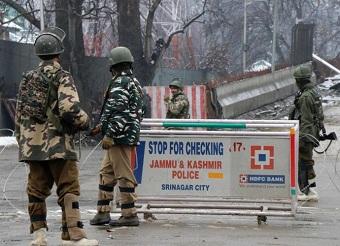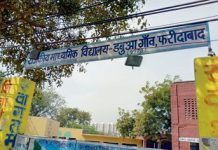The Telecommunications Consultants India Ltd (TCIL) has floated a tender for a tie-up to design, supply, implement and maintain CCTV surveillance system across 385 proposed sites and 162 existing sites in Jammu union territory (UT). The notice inviting tender (NIT) is in line with an earlier tender floated by the Jammu and Kashmir (J&K) police to introduce heavy surveillance technologies in the conflict-ridden region. The NIT refers to the police tender as an “integral part” of its project.
This latest NIT states that the service provider working with TCIL shall provide a turnkey solution for all the components as envisaged by the J&K police within a period of three years. With this, the Jammu region moves a step closer to the administrative vision of an “integrated” surveillance network.
Various police departments in India are eager to increase surveillance via technologies like CCTV cameras and facial recognition technology (FRT) systems under claims of “public safety.” Karnataka police even launched a programme to train officers in using drones that provide aerial surveillance. This is part of a trend of deploying technologies for policing, at a time when there are no adequate privacy and data protection laws among other missing safeguards. However, in this case, digital rights experts have been wary of such equipment in the hands of governments, especially considering the recent withdrawal of the Data Protection Bill. Although even the Bill faced criticism for exempting government agencies from its penalties, the absence of any law to protect citizens’ privacy rights increases the threat of a ‘surveillance state.’
In the preceding tender, the J&K police talked about appointing a system integrator (SI) to connect CCTV surveillance network with existing surveillance systems and feeds namely, 183 cameras in the Kashmir region and 218 cameras in the Jammu region.
The administrative vision is to install cameras across the UTs in all markets and bazaars frequented by locals and tourists, major schools, universities, colleges, offices, and public transport hubs. Further, the police talked about having CCTVs along all roads for viewing capability regardless of the time, especially in “sensitive” areas. Aside from this, the police also intend to install cameras along UT borders and entry-exit points.
Of course, the push for CCTV cameras is not new. In April 2021, the J&K police headquarters invited e-tenders for the supply, installation and commissioning of CCTV surveillance systems at Raj Bhawan Jammu and Srinagar. Over time the government has issued many such orders, slowly covering the whole region.
Back in the northernmost region of India, J&K police plan to introduce the FRT system in both UTs with a database that can store details of more than 10,000 people, after installing CCTVs. In the earlier tender, the J&K police said that by building CCTV infrastructure it hopes to develop further general surveillance via Automatic Number Plate Recognition System (ANPR), Command Centre and FRT, etc.








